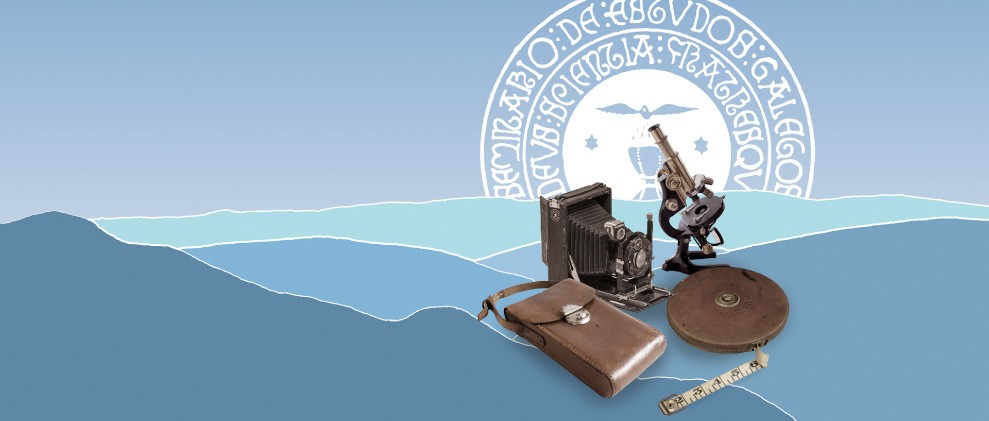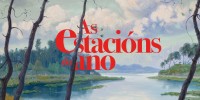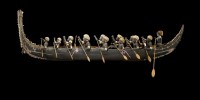The exhibition Light on the Land. The Seminary of Galician Studies (SEG): an institution of high culture has been conceived to celebrate the centenary of the founding of this institution, which played a decisive role in the construction of Galician identity and was a great driving force behind Galicia’s cultural and scientific modernisation. The exhibition also aims to highlight the value of collective work, which promoted the image of our culture abroad, connecting with similar institutions in Spain, Portugal, Brittany, Ireland, the United Kingdom, Germany and several countries in the Americas.
On display are photographs, publications, manuscripts, sketches, drawings, etc., as well as a selection of unique pieces that allow us to trace the Seminary’s history from its very founding act, which is exactly where this journey begins.
Light on the Land has been curated by one of Galician’s leading historians: Ramón Villares, Emeritus Professor of Contemporary History at the University of Santiago de Compostela, where he held the positions of dean and rector. He was a founding member and president of the Spanish Association of Contemporary History, is a full member of the Royal Galician Academy and was president of the Galician Culture Council.
An institution of high culture
The centenary of the foundation of the Seminary of Galician Studies (SEG) commemorates an institution that the founder of the Irmandades da Fala, Antón Villar Ponte, would qualify as being of “high culture”. The SEG was founded in 1923, at the initiative of a group of university students in Compostela, which included names such as Fermín Bouza Brey, Xosé F. Filgueira Valverde, Lois Tobío and Ramón Martínez López, encouraged by professors such as Armando Cotarelo and Cabeza de León, who would become the first and second presidents of the institution.
On 12 October 1923, nine young university students walked to the Casa Grande de Ortoño, where Rosalía de Castro spent her childhood, in what became the Seminary’s founding excursion. This youth initiative, supported by the university, would eventually play a leading role in Galicianism and Galician history itself. The Seminary would come to include, among its members, the “fathers” of the Xeración Nós movement, such as Risco, López-Cuevillas and Otero Pedrayo.

The principles of the Seminary
|
— The universal dimension of Galician culture — Commitment to Galician as a language of high culture — The commitment to scientific knowledge as a path to progress — The desire to explore, research and disseminate Galician culture — The need to have a voice in the world — Galicia's open and inclusive nature |
.
The Seminary’s legacy
It grew to over two hundred proposed and admitted members and a wide network of sponsoring partners. They encouraged the integration of disciplines, worked as a team, standardised use of the Galician language, and contributed to building the autonomist movement of the Second Republic.
Its work received unanimous recognition, but the Civil War ended the institution and some of its unique initiatives. Its heritage and its unfinished projects would have continuity in the Padre Sarmiento Institute and subsequently, in the Museum of the Galician People and in the re-born Seminary of Galician Studies, promoted by Isaac Díaz-Pardo and the Sargadelos group.

Cultural heritage
Through Light on the Land, the galician Government helps to promote the rich treasures held by Galician foundations and entities that work to preserve our historical and cultural heritage, and have lent pieces for this exhibition:
|
|
.
Curator: Ramón Villares
Ramón Villares (1951) is Emeritus Professor of Contemporary History at the University of Santiago de Compostela, where he held the position of Dean of the Faculty of Geography and History (1986-1990) and Rector (1990-1994). A founding member and president (1996-2002) of the Spanish Association of Contemporary History, Villares is a full member of the Royal Galician Academy (2006) and was president of the Galician Culture Council (2006- 2018). Doctor honoris causa from the Universities of Buenos Aires (Argentina), Minho (Portugal) and Rennes-2 (France), he also received the Galician Critics' Awards (1983 and 1985), the Fernández Latorre Award (2005), the Puro Cora Award (2017) and the Galician Culture Award - Foreign Image (2018).
— Documentary maker: Alfonso Mato
— Documentary maker (artistic and visual): Miguel Anxo Seixas
— Technical support: Gustavo Hervella





